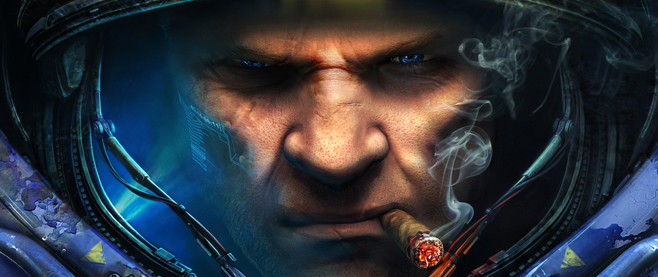
Feeding The Chimera
Reframing the boundaries of what is seen and unseen…
———
When I was younger, I felt a sense of awe upon traversing a sprawling map with an endless array of things to do and see. I anticipated whatever my next, ‘you see that mountain in the distance? You can go there!’ moment would be.
But all of that is in the past.
I’ve climbed those distant mountains more than a few times now and slew the monsters waiting at their peaks. I’ve pillaged enough caves, villages, and encampments in these pursuits that it’s all become a bit too familiar. This time around something funny happened. I reached the base of the mountain and there was no treacherous path, in fact, the road was paved all the way to the top. As I ascended the mountain, one by one, people brought food up by the truckload.
When I made it to the top, I was surprised to find them all feeding a lethargic Chimera, its fiery breath extinguished, its jagged teeth long gone, and its venom long dried up. The Chimera just sat there, in a euphoric stupor.
I couldn’t help but wonder why we were feeding this monster in the first place. And what might happen, instead, if we put it to rest once and for all.
*
Biomutant feels like a game that’s been a long time coming, and I’m not just talking about its journey to finally launching into the world. It’s a sprawling, furry epic that wears its heart on a scrounged-up, radioactive sleeve. But beneath the confluence of systems it’s stitched together I can’t help but feel like there’s a warning to be heard. A murmur saying that we’re feeding into our own demise.
At its core, Biomutant is a game you’ve played before. In fact, it feels a bit like the greatest hits of every successful AAA game system of the last 10 years packaged together in an undeniably unique animal aesthetic.
It’s a chimeric concoction of well-worn parts: post-apocalyptic world, weapon crafting, armor crafting, dialogue options, a morality system, open-world map, clearable enemy outposts, an endless amount of loot, skill trees, ability points, magic points, character customization, mechs, close and long-range combat, gliders, side quests, fast-travel waypoints.
Biomutant is built like a video game-themed mad lib you might create on a bar crawl that’s been going on a bit too long. It’s no surprise then to say that it doesn’t nail the landing on making most of these systems feel all that great. But despite all of that, I keep finding myself yearning for this game, in particular, to be good.
Most of the time if I don’t like a game I can easily just drop it, let it dissipate from my psyche like it never was there in the first place. But this game is like a bad love. I keep coming back to it thinking that this time it will be better.
*
In ancient Greek mythology, Typhon, a towering giant who, for a time, was considered to be the most dangerous creature in all of Greece; and Echidna, a half-serpent, half-woman monster who rivaled the power of Typhon, spawned the monster known as Chimera.
For a long while, Chimera was considered near invincible and reigned over the Lynean countryside basically unchallenged. It made sense, the monster was an amalgamation of powerful, disparate parts. Primarily a ferocious lion with the head of a fire-breathing goat protruding from its back and a tail taking the form of a venous serpent, much like its mother.
In Homer’s The Illiad, a noble hero named Bellerophon is the one who eventually vanquishes the beast. During their battle, Bellerophon rode the winged horse, Pegasus, and flying high above Chimera, rained down on it with arrows inflicting some critical blows onto the beast that allowed him to move in for a killing blow.
He hurled a spear at Chimera that punctured the throat of its goat head, but the most interesting aspect of the story is that the wound isn’t necessarily what killed it. Chimera’s own firey breath melted the lead spear which allowed the fiery liquid to burn it up from the inside.
*
I’ve been playing games for the majority of my life, and while every medium of art whether it’s painting, film, writing, music, or something else is in conversation with what came before it, I can’t help but feel like Biomutant is the latest floor built on a skyscraper much too large in the games industry.
The systems that make up every aspect of the game are not only tried and tested, they do feel incredibly enjoyable to me in many games, but for some reason, they just don’t in Biomutant. There’s a lot to be said about a small team overreaching and underdelivering on the vision they set out to realize. I think that’s true of this game, and many other open-world games made in the last decade that evaporate from our minds. That’s an easy critique to make, and a boring one even at that.
I’m stuck on this feeling I have while playing Biomutant where I want to like it. I want it to succeed, and I want it to figure out its own voice. I think this comes from the fact that there is a unique perspective to the world and drive of this game that is buried beneath decades of game design that has felt invincible, a sure bet. But maybe all of this iteration, this conjoining of these systems we know to “work” is the very thing stifling Biomutant from actually achieving the promise that its visuals and light-hearted humor embody?
To me, what’s unfurling in the wake of this game’s release is the cracking open of open-world systems that have long been in decline, but have continued to survive because they have worked in the past. There was a time when clearable outposts were surprising. I remember this feeling when I devoured Far Cry 3, and then every open-world game I played after it had them. This form of iteration feels a lot like the worst-case scenarios of intertextuality at play.
My friend, fellow critic, and game developer, Devin Raposo, put it another way recently on Twitter, “Playing video games so often feels like reading the same paragraph of a novel over and over again.” These systems are decaying because we’re putting the same sentences through the equivalent of a translation app over and over again. The message distorting a bit more every cycle.
This isn’t to say that all of the systems Biomutant cribs from are rotten and must disappear, quite the contrary. After all, you know how the old adage about the great novel goes–something like there are only three or four stories that we’re all retelling over and over again. We can debate the validity of that statement another time. But what saves literature from these endless cycles of repetition isn’t the content itself, its form.
Form influences content, it’ sees things anew, it looks beyond the borders of what’s expected, and creates new frames for us to think about the foundations we’re building upon. Smaller indie games are doing this work each and every day, presenting this medium with an “elsewhere” to ruminate upon.
We’re feeding a monster that’s lost its teeth and even its awesome aesthetics can’t even save it anymore. This amalgam will eventually burn itself alive anyway. There’s a great version of Biomutant that exists somewhere, but much like the radioactive climate its narrative critiques, we, too, are quickly cultivating an environment that will never allow that spectral version to exist.





